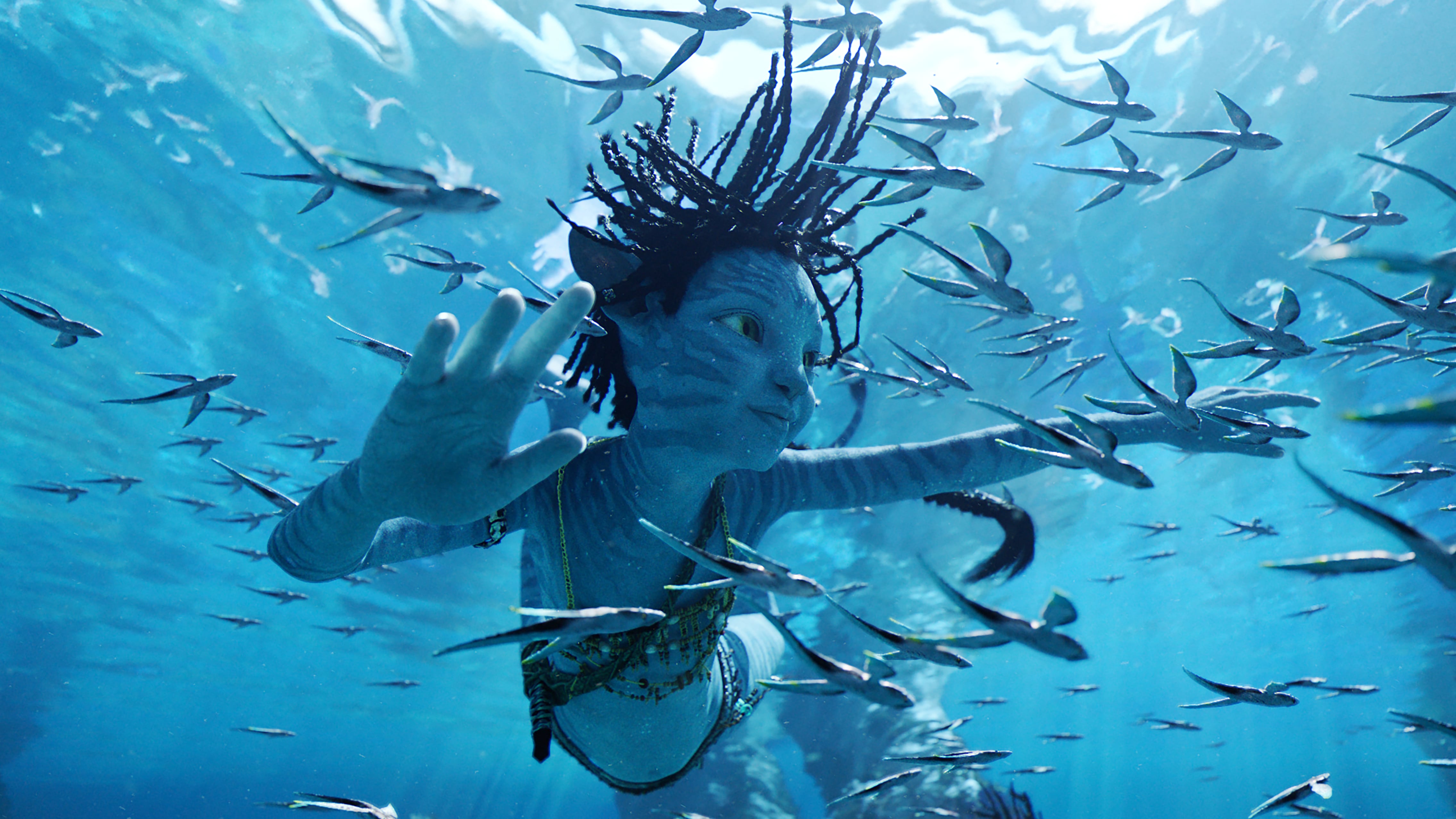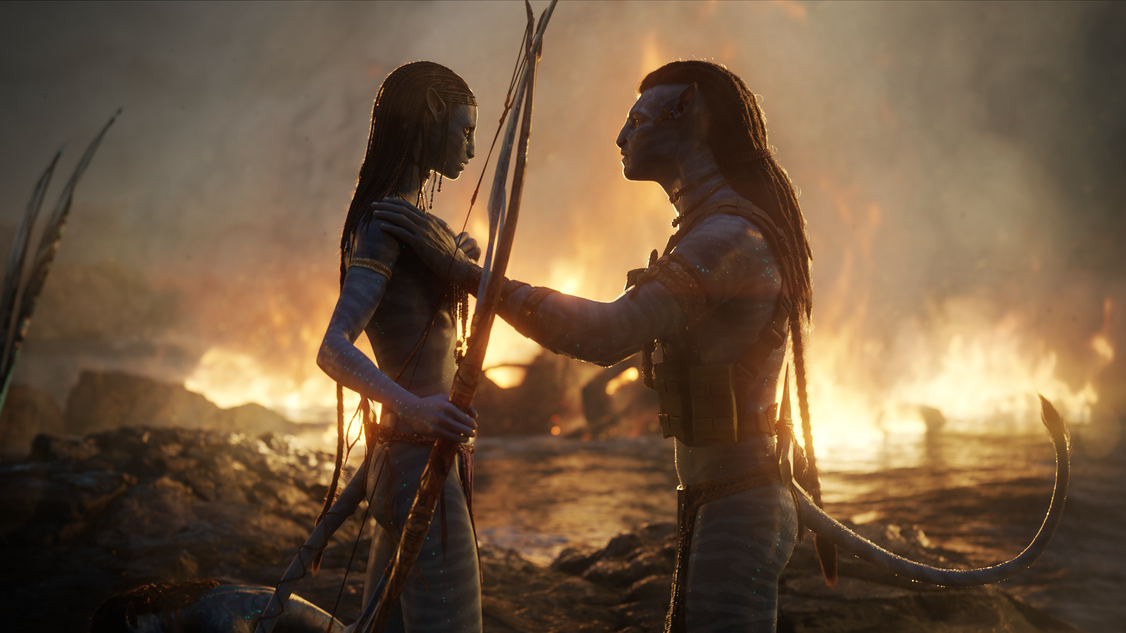Much has been made of the downright jaw-dropping technical wizardry on display in Avatar: The Way of Water, and it’s hard to argue against director James Cameron’s decision to wait over a decade for the appropriate filmmaking technology to arrive before commencing work on his subaquatic sequel.
In an exclusive interview with TechRadar, Daniel Barrett, Senior Animation Supervisor at Wētā FX, explained the method behind the magic of The Way of Water’s bar-raising performance capture visuals, and we asked the seasoned animator how he and his team pulled off a very specific shot – one that sent the internet into raptures following its inclusion in the film’s very first trailer. Check it out via the tweet below.
This CGI is insane... pic.twitter.com/tbafxgyhUxMay 10, 2022
“It's nearly human,” reads one comment underneath the post. “It could just be a guy painted blue,” reads another. The best response of all: “Pretty sure it isn’t CGI. Cameron actually went to Pandora to film this one.”
For context, the shot in question shows Sam Worthington’s Jake Sully tightening the reins on a skimwing, the Metkayina clan’s sea-dwelling version of the mountain banshees ridden by the Omaticaya. But how much – if any – of what we see in the two-second clip is real, and how much is computer-generated? Thankfully, Barrett has the answers.
“We shot that practically,” he explains. “At the time, there was talk about whether that shot was going to be [used for] reference, or whether it was going to be in the film. It looked really good, what had been done – but it was just the hand that was practical. So we had the challenge of connecting that hand, mid-arm, to a CG arm, which was connected to a CG body, which was sitting on a CG skimwing. And then we had some practical water as well that then had to connect to CG water. So it's a mix. The hand and water surrounding [the shot] is practical. The rest is digital.”
CG water? No wonder Cameron’s sequel needed to surpass $2 billion just to break even.
A different kind of challenge

Caution: major spoilers for Avatar: The Way of Water follow
For Wētā FX – the New Zealand-based visual effects company founded by The Lord of the Rings director Peter Jackson in 1993 – Avatar: The Way of Water represented the ultimate challenge. Animators like Barrett had to draw on all their experience to clear the impossibly high bar set by Cameron, whose extensive use of underwater performance capture techniques presented entirely new VFX obstacles.
Were there any particular sequences that struck the fear of Toruk into Barrett and his team? “Technically, there were certain water shots that did worry me,” he tells us. “A lot of the boat shots were a concern, just because we knew we were in a parallel workflow with the effects tem. You can do your work, you hope the water surface stays as it is, you hope the wave phase remains as it was when you started animating. But then you also know that that needs to be simulated, and the simulation of the water now affects the boat’s surroundings. You can end up in a little bit of a loop. So a lot of the boat shots [were challenging].”

“There were also some huge scenes,” Barrett continues. “The return of the Tulkun to the village – there was an awful lot going on in those shots. But personally for me, one of the harder sequences to work on – and I don’t want to get too soppy – was [Neteyam’s] death on the rock. I found that really difficult. By the time I saw it in the cinema, I was somewhat immune to it. But the first 20 times were very, very difficult to watch.
“The performances are just so strong. Take Zoe [Saldaña] as an example. It’s not even just the raw emotion you see in her at the beginning. Later, when Jake implores her to do what’s needed for the other children, you see her resolve arrive. The grief never leaves, but the resolve arrives, and it’s so subtle.
“So for me [as an animator], it’s an exhilarating thing to get to the point where you feel like you’ve found everything that she did. Those more subtle shots are really the most satisfying moments.”
Avatar: The Way of Water is now playing in theaters worldwide.
Comments
Post a Comment